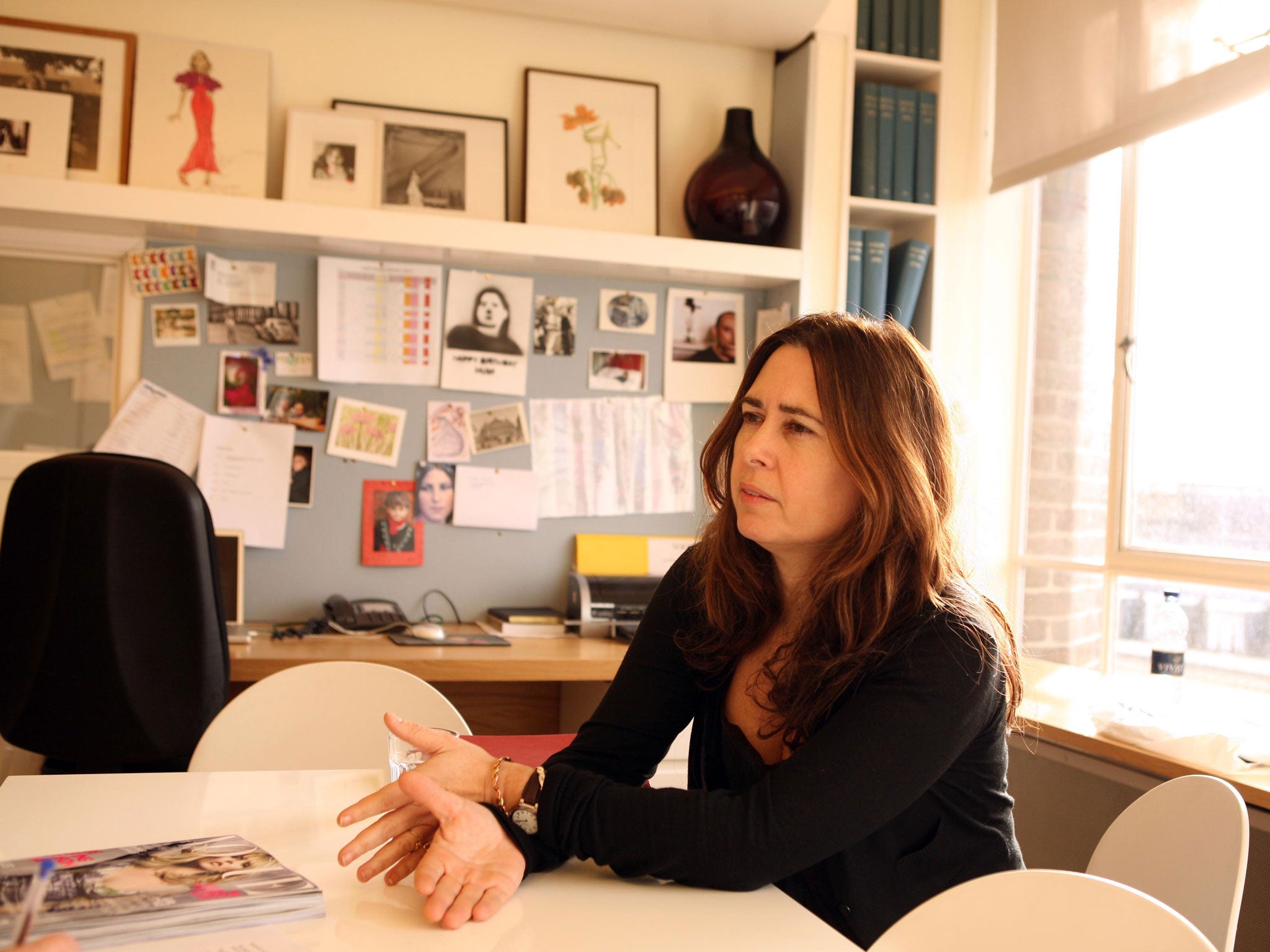'Vogue' exposes industry's tricks: The magazine has made a film to reveal fashion's fakery to teenagers

Your support helps us to tell the story
From reproductive rights to climate change to Big Tech, The Independent is on the ground when the story is developing. Whether it's investigating the financials of Elon Musk's pro-Trump PAC or producing our latest documentary, 'The A Word', which shines a light on the American women fighting for reproductive rights, we know how important it is to parse out the facts from the messaging.
At such a critical moment in US history, we need reporters on the ground. Your donation allows us to keep sending journalists to speak to both sides of the story.
The Independent is trusted by Americans across the entire political spectrum. And unlike many other quality news outlets, we choose not to lock Americans out of our reporting and analysis with paywalls. We believe quality journalism should be available to everyone, paid for by those who can afford it.
Your support makes all the difference.One of the biggest names in the world of fashion is to go into Britain's secondary schools to reveal the trickery behind the glossy images it sells.
Vogue magazine is making a film exposing the chicanery of a fashion shoot, to be screened to teenagers around the country in an attempt to promote healthier attitudes towards eating and body image.
The film, a project of the Vogue editor, Alexandra Shulman, will go behind the scenes at a fashion shoot to show "the difference between fashion and reality and how a fashion image is constructed," she told The Independent on Sunday.
Ms Shulman, who wrote to designers in 2009 complaining that the tiny clothes samples they sent were forcing magazine editors to shoot them on models with "no breasts or hips", hopes that the new schools programme will stop "a 12-year-old looking at a fashion model in Vogue and thinking, 'Why don't I look like that?'"
Digital retouching of models – where details like fat, blemishes and wrinkles are removed after the shoot – is only a "tiny part" of what happens, according to Ms Shulman. "It's basically a huge team of people that go in to create the image, of which retouching is the icing on the cake," she said. "You can do far more with lighting and make-up."
The Vogue editor was wary of giving details about the film, which will be edited and distributed over the next few months. "I'm hoping that it will be fun for the pupils but, actually, it will make some serious points," she said. "Schools will get it at the end of this term so that they can slot it into their programme for the autumn term."
Vogue's publisher, Condé Nast, is keen to court British teenagers. Ms Shulman launched a fashion magazine for teenage girls this week, Miss Vogue, packed with adverts for high street labels and luxury brands.
Initial reaction to the Vogue film was warm. "Alexandra Shulman is clever enough to see the benefits where honesty is concerned for her brand," said Caryn Franklin, co-founder of All Walks Beyond the Catwalk, which campaigns for healthy body images. "The high levels of confusion that young women display about what is and isn't real need to be tackled by our industry."
A year ago Vogue announced a code of conduct in which Condé Nast and the editors of Vogue's 19 international editions agreed to "encourage a healthier approach to body image within the industry".
Last weekend, the models Daisy Lowe and David Gandy took part in a discussion about body image as part of a fashion festival run by the magazine at London's Southbank Centre. "I've been sent home from a show in Milan for being too big," Ms Lowe revealed. And Mr Gandy claimed male models are under the "same pressure" as women.
Join our commenting forum
Join thought-provoking conversations, follow other Independent readers and see their replies
Comments